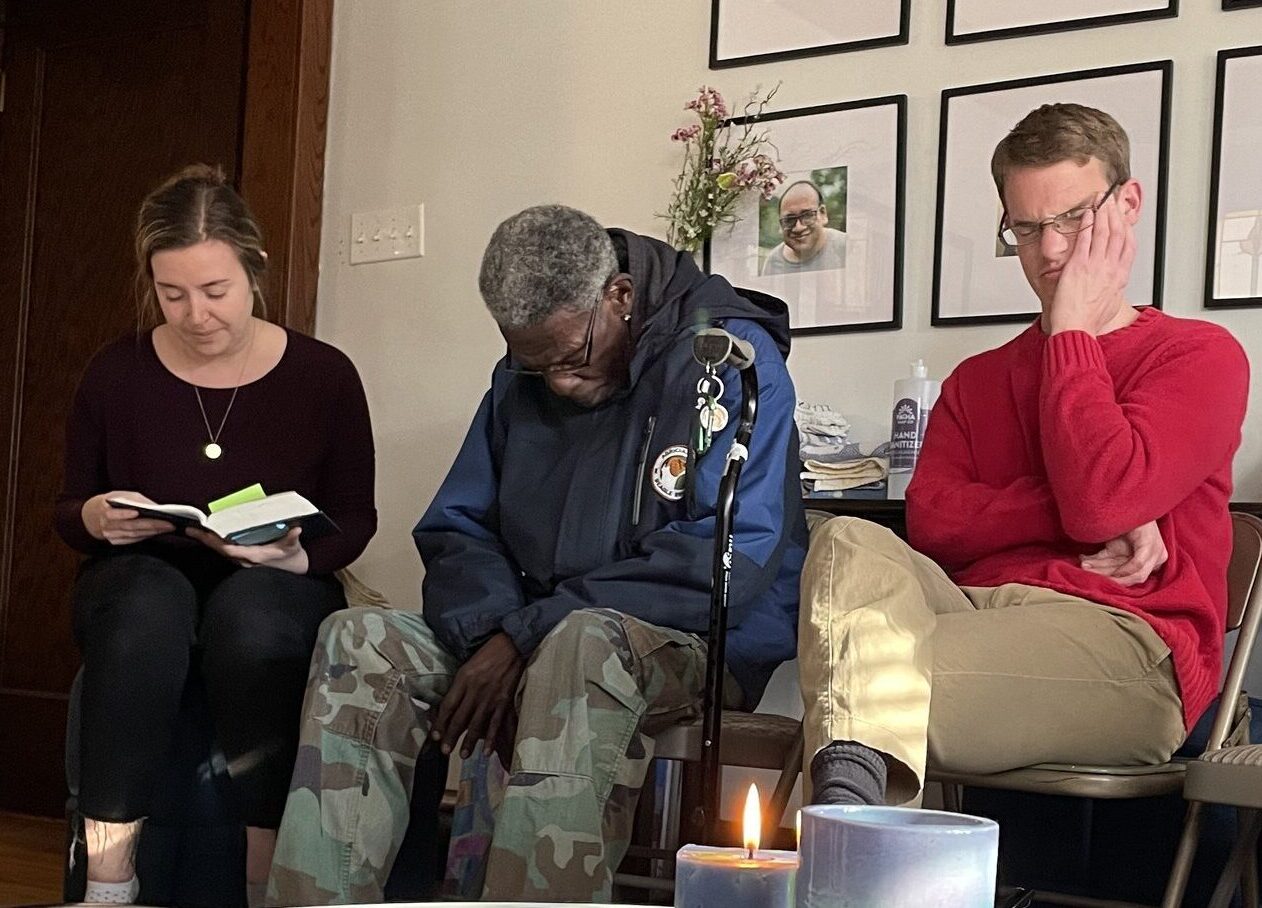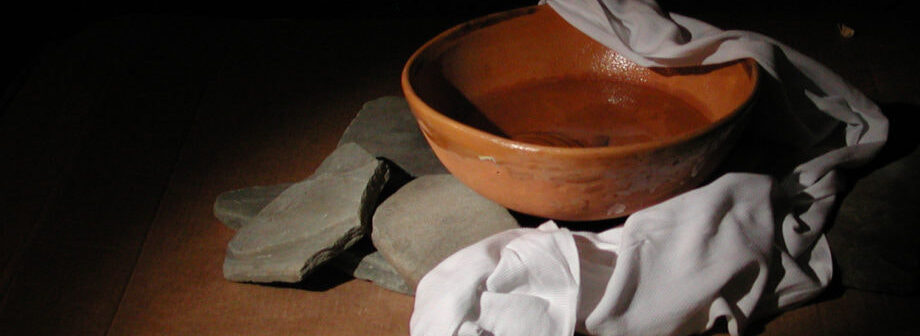In our community, we have a tradition of washing each others’ feet on Maundy Thursday, the Christian holiday that proceeds Easter. Foot Washing has been a tradition of many L’Arche communities all across the world.
Just as the practice originally did in the Christian Bible, foot washing serves as a symbolic ritual. The ritual symbolizes hospitality, servant leadership, and mutual service to one another. At the Last Supper, Jesus took his disciples’ feet and washed them – putting himself in the position of a servant. When we wash each others’ feet in remembrance of this action, we are reminding ourselves that we all need care. We all need each others’ service.
An Invitation Of Care
Dr. Kim Bryze
The feet are the lowest part of the body. Those of us who care for the personal needs of others may think that the bottoms (the places where nasty stuff leaves the body) are the “worst” or lowest, but geographically the feet are the lowest. In Middle Eastern cultures, one must not show another person the soles of one’s feet – it is an insult, a disregarding of the other, a sign of true contempt. In Jesus’ time, the feet of those who traveled or followed their teachers/leaders/rabbis would get dusty, dirty, and contaminated by walking along trails and paths already frequented by many people, livestock, and horses (who are not house trained). So when a person came to another’s home, they had to have clean feet to enter so as not to contaminate the dwelling place.
The responsibility for washing off the dust, dirt, and filth was the job of the lowliest servant. Having that job was not favored; the servant would much rather have the task of providing a visitor with food or doing another ‘clean’ task – one that would not also contaminate the servant who was washing the filthy feet.
Today we do not walk around dusty, manure-laden paths with our feet wearing only sandals. We have soft grass, concrete, and sturdy shoes to wear should we choose. Nor do we practice the apprenticeship of physically and methodically following a teacher or a person we highly value. Our feet do not get dirty and contaminated by the same substances as those in Jesus’ time. But we do get our feet dirty and contaminated by what we do follow in this modern age.
We are living in a time of discord, distrust, competition, lies, hatred, and fear. Political, social, and cultural forces all war against each other and strive for our attention, our energy, our devotion. We follow causes, people, and ideas that are calling to us in enticing ways. Cultural patterns and practices are constantly shifting and draw people to follow ‘this’ one day and ‘that’ another day, year, or season of life. We wander, we explore, we seek, and we get dirty and contaminated in the process. And our feet also need to be washed. We need to get clean again and again, to better live and love freely.

Washing another person’s feet. Perhaps that is not the scary part, as we wash core members every day, whether their stinky bodies or their clothes or linens. Perhaps the scary or unsettling part of foot washing is letting someone wash our feet. They would have to get close, see, and even touch the places of dust, direct, contamination we have walked in . . . places and things we have experienced, experimented with, walked through. Having one’s feet washed is scary in its reality, accountability, and transparency. Do I want you to see where my feet have been? Do I want you to smell what I have walked in, whether I have tiptoed in it (and it has gotten between my toes) or I have stood firmly in it (grounding myself in the muck and mire of my “free choice”)? Do I want you to see evidence of where I have been? Do I want you to see me so up close?
For core members, having their feet washed sends a message – that you love and accept them as they are, because they are worth the care and attention. Foot washing is an act of humility, honoring the most vital, primitive, unsightly parts, to convey loving care, support, respect, and, most of all, trust. Practically you must trust the one who holds your nasty foot to gently wash the dirt and stains from its crevices to make you clean, to restore you to a relationship and a loving space.
I pray that you can take the foot washing time seriously. That you will risk the opportunity to look carefully at your own feet, and where you have been stepping and walking and standing – and let someone clean, restore, and heal you. That you can accept the lowly task of washing another’s feet with the acceptance, love, and dignity they deserve because they, like you, are beloved by God.

